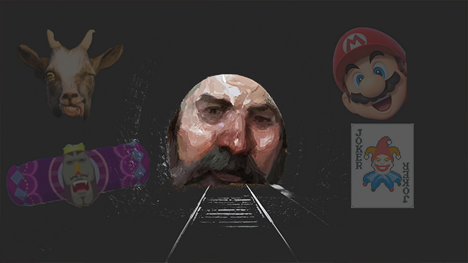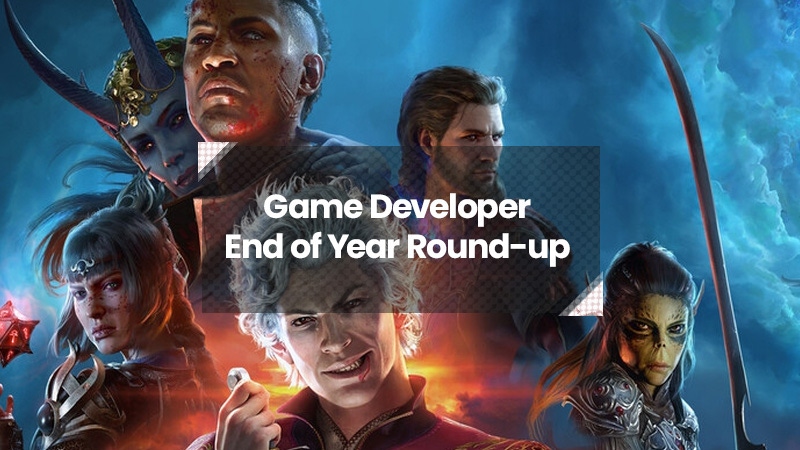
At a Glance
- Triple-A titles that stood out to us included Alan Wake 2 and The Legend of Zelda: Tears of the Kingdom.
- But smaller games like Jusant and Cocoon blew us away as well.
2023 was a year of dizzying highs and soul-crushing lows for the video game industry. Any celebration of the excellent games released this year must come with an acknowledgement of how many developers and industry professionals lost their jobs and the loud pronouncement that none of the incredible games we played are possible without every single soul that contributes to their making.
So we celebrate, but with some somberness. This year was another incredible advancement for the technical and artistic craft of video game design, and as always, it’s a difficult task to narrow this list down to a mere 10 excellent titles.
But after many polite debates coup attempts compromises, we came to something resembling a consensus.
But this is just the beginning—for a wider selection of excellent games we’re celebrating this year, keep an eye on our newly-refreshed website for more personal top 10 lists and end-of-year analysis from our editors and contributors.
The Legend of Zelda: Tears of the Kingdom (Nintendo)
A masterpiece of technical innovation and masterful game design, The Legend of Zelda: Tears of the Kingdom couldn’t not be one of our top games of the year. On the technical side of the equation, Tears of the Kingdom blew us away with the mind-bending Fusion system fueled by a radically reinvented game physics. The two work in tandem to act as a toybox for would-be engineers, who’ve manufactured all kinds of creations that run the gamut from slapstick monstrosities to jaw-droppingly genius Rube-Goldberg machines.
But what good are such machines without places to explore with them? Here Nintendo went above and beyond, filling Hyrule itself out with a vibrant overworld full of hidden tunnels and caves, sky islands that brought players to incredible heights, and the Depths—a corrupted space best traversed with machines made with the Fusion power.
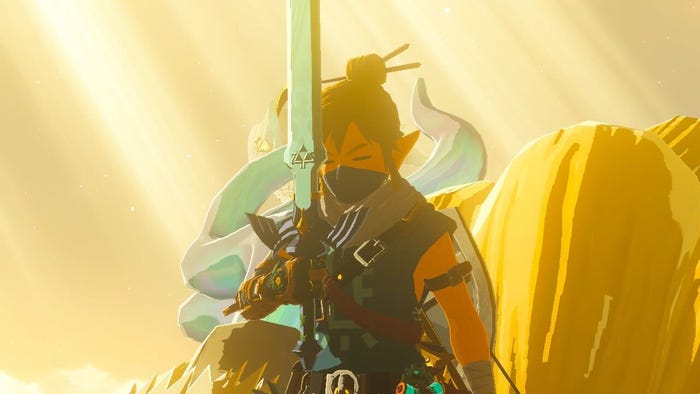
Image via Nintendo.
The interlocking “tag” systems first seen in Breath of the Wild still feel like a breath of fresh air, and new powers like the Muddle Bud fusion show just how far Nintendo can take this excellently emergent system.
What’s more, all these technical innovations were made on the seven-year-old Nintendo Switch with very few breaks in performance. It’s a high-profile case study the of how console makers can work hand-in-hand with development teams to make boundary-pushing games.
-Bryant Francis, Senior Editor
Cocoon (Geometric Interactive/Annapurna Interactive)
Simply put, Cocoon is a well-designed puzzle game that made me feel very smart. Featuring a beautiful, abstract universe where players jump between, transport, and traverse orb-like worlds to solve increasingly galaxy-brain-tickling puzzles, Cocoon was an utterly delightful trip for me this year. The game only stumbles when it turns a bit too far from the brilliance of its worlds within worlds conceit (I didn’t love the boss battle sequences, as much as they did add a change of pace), but the power of its "eureka!" moments was more than enough for me to fall for its charms.
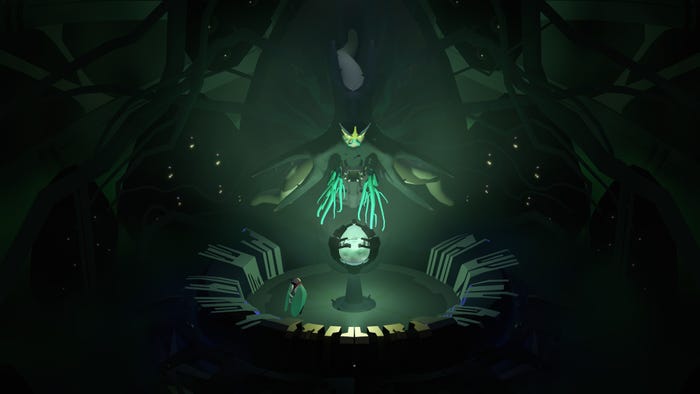
Image via Geometric Interactive and Annapurna Interactive.
Cocoon certainly has my number: I’ll enjoy anything that gives me the good brain juice from figuring a scenario out and making a solution stick. What I love more is a game that makes me think about its design and what makes it all click so satisfyingly, something that developer Jeppe Carlson talked about in an interview here on the site this fall.
Much of the game’s overall structure (and core mechanic utilizing a hierarchy of worlds and “suitcasing”) puzzles was designed in its creator’s head, improved over a long prototyping process, and formalized as the game came together organically. Now that really is the stuff.
-Danielle Riendeau, Editor-in-Chief
Jusant (DON'T NOD)
Jusant is a pleasant game for many reasons, not the least of which being it doesn’t overstay its welcome. This short but sweet rock-climbing title wonderfully simulates the real-life sport, whether it’s the gentle hand-over-hand action guiding you across a rock face, or the contemplative pause before considering how to scale the next wall (having shouted "BELAY IS ON" a few times in life myself, the walk down memory lane was lovely).

Image via DON'T NOD.
There’s something to be said for a game that does one thing and does it well; the coordination of the game’s control scheme and how it correlates to the physical experience of rock climbing is simple but effective, and luckily, a little less nerve-wracking than the actual thing, making it one of my favorite plays of the year.
-Holly Green, Community Editor
Humanity (Tha Ltd. / Enhance)
What if god, but dog? Those are the kind of cosmic quandaries you'll face during a playthrough of Humanity. The latest synesthetic puzzler from Enhance is a co-production that saw the Japanese studio and founder Tetsuya Mizuguchi combine with Tha Ltd. to create a future-perfect throwback. Humanity is arguably more ambitious and surreal than some of Enhance's past work, which includes acclaimed titles like Rez, Lumines, and Tetris Effect.
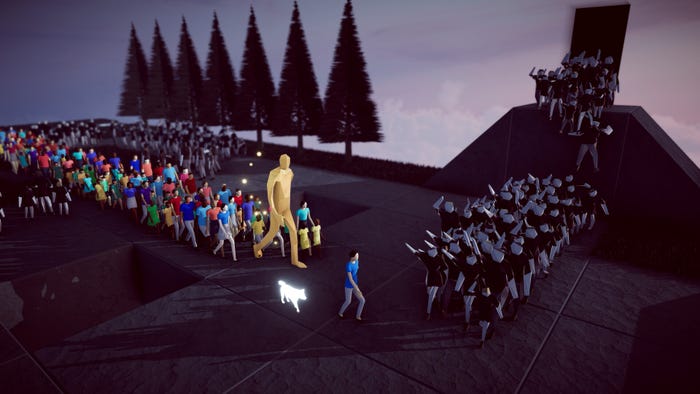
Image via Tha ltd. and Enhance.
The existential puzzle-platformer began life as a tech demo that asked 'how many virtual humans can we fit on-screen?' and then, much like its namesake, evolved into something more. Form and function rise to the surface, coalescing into a shape that feels recognizable. Take control of a luminescent Shiba Inu and ferry souls through an unreality by barking commands into the void. Turn left. Hop over that gap. Walk towards the light. It's simple, until it's not.
Eventually, closed circuits become Escher-esque labyrinths littered with impossible obstacles; docile crowds transform into warring factions; and your powers expand exponentially. Yet for all of its spiraling complexity, Humanity is undeniably therapeutic, lulling players into a trance with its pleasing, methodical gameplay (and the help of a radiant electronic score from Jemapur) to deliver a sensory, transcendental experience quite unlike anything else.
-Chris Kerr, News Editor
Hi-Fi Rush (Tango Gameworks/ZeniMax Software)
If 2023 started off strong, then Hi-Fi Rush was an unexpected burst of speed. A surprise release on the same day as its initial reveal allowed Tango Gameworks to catch everyone’s attention with how it seemed so unlike the studio’s previous horror-based games. But the circumstances of its release aren’t the only thing going for it: on its own merits, it’s just a really good game that succeeds in what it wants to do.
There’ve been countless character action games over the years, but not all of them have come with this much style and confidence. Smashing robots with Chai’s guitar and calling on companions to help with the brawls would be satisfying on its own, in the way games with good combat systems often are.
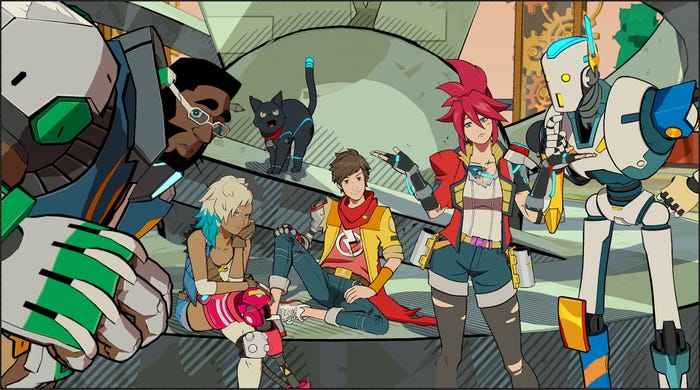
Image via Tango Gameworks/ZeniMax Software.
But the conceit of everything in the world being timed to music is what makes Hi-Fi Rush work: the metronome helps keep you on the 2 and 4, the needle drops are all inspired, and it just makes an already charming game even moreso.
‘Charming’ really is the word that best describes Hi-Fi Rush. That appeal was all over PlayStation 2 games from back in the day, which this game is absolutely playing in the space of. While it wasn’t the Xbox exclusive of 2023 with the biggest backing behind it, this was absolutely the console’s best of the year, most of all because it knows that it’s just here to show you a good time.
-Justin Carter, Contributing Editor
Alan Wake 2 (Remedy Entertainment/Epic Games Publishing)
A sequel to the similarly-named 2010 game about a severe case of writers block and a lakeside writing retreat gone horribly wrong, Remedy Entertainment’s Alan Wake 2 picks up the mystery 13 years later with a story that dances between the real world and the Dark Place that held the titular Alan Wake prisoner for over a decade.
The plot weaves together threads from both worlds and the stories of dual protagonists Wake and Saga Anderson. Players are left questioning the nature of reality itself and the reliability of the story they participate in.

Image via Remedy Entertainment/Epic Games Publishing.
Concepts introduced in the first game, like Wake’s ability to affect the world around him through his writing, have been enhanced and expanded beyond character abilities into core gameplay mechanics, allowing entire levels and scenes to shift depending on how players instruct Wake to write the scene. The shifting and fictitiously self-aware narrative that’s equally influenced by the player and dark, unknown forces alike is something that would not work in any other form of media.
Coupled with striking visuals and further expertise honed and showcased by Remedy’s excellent 2019 release Control, Remedy takes the themes and concepts behind the original game and creates a truly transcendent survival horror experience with scathing commentary on the creative process.
-Alissa McAloon, Publisher
Dredge (Black Salt Games/Team17)
Dredge is one of the standout success stories of 2023. The eldritch fishing adventure is a vibrant seafood gumbo that combines Tetris-inspired inventory management, snappy angling minigames, and tense exploration to create a succulent, swirling emulsion that we couldn't help but slurp down.
It's the little flourishes that make Dredge truly special. The title's time-based exploration system ties the passage of time to player movement, forcing players to consider how they plan to navigate the high-seas before undocking if they want to avoid the horrors that linger in the long dark. For all of its glistening beauty, you don't want to be stranded on the open ocean when the sun goes down.
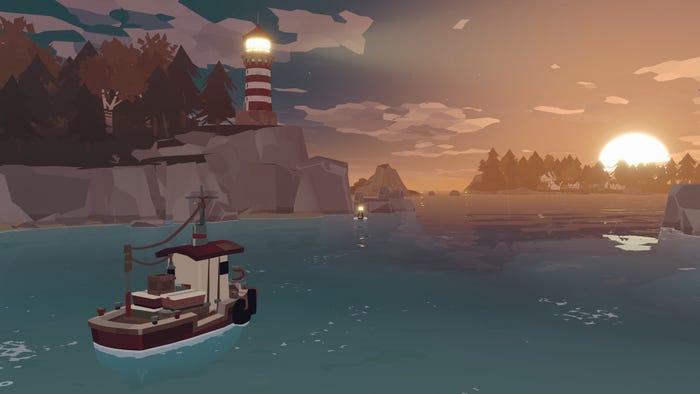
Image via Black Salt Games/Team17.
Dredge also knows when to lean into its horror sensibilities and when to hang back, cultivating an undercurrent of tension that might sweep even the bravest sailors away by toying with the notion of the unseen to whip minds into a frenzy.
Those razor-sharp design choices are a testament to the talent at Black Salt Games, and the studio is already reaping the rewards. The title passed 1 millions sales in October, smashing internal expectations and enabling the indie outfit to look towards the future from a place of security.
-Chris Kerr, News Editor
Baldur's Gate 3 (Larian Studios)
It goes without saying that Baldur’s Gate 3 has earned its place on this list. At its core, the triumph of the game comes from Larian Studios’ thoughtful approach for adapting tabletop RPG-inspired mechanics, lore, and player experience to video game form. It captures the chaotic collaboration of a D&D session better than nearly any game to date.
While some of those mechanics translate with varying levels of success—I’m so sorry to everyone who had to learn about Spell Slots this year—the versatility of the game itself gives players room to define what kind of playstyle what works best for them.
Whether that playstyle is spending a few dozen hours in the character creator or smooth-talking your way out of a tough fight, there’s no one way to play the game and there’s always something new to try.
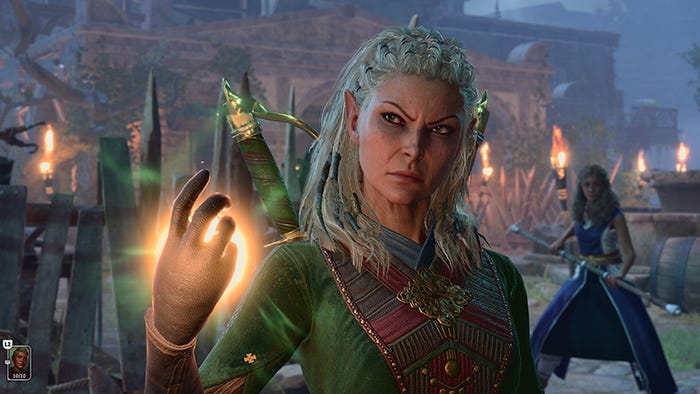
Image via Larian Studios.
Larian’s approach and expert quest design consider an unreal amount of variables throughout gameplay, with dialogue or encounters accounting for edge cases like pickpocketing key items right as the quest giver is about to deliver your reward, or unique back-up back-up characters that join certain questlines should the player have killed or otherwise parted ways with party members or key NPCs.
Each decision made during the development of Baldur’s Gate 3 empowers players to make the adventure their very own and goes on to deliver rewards (or consequences!) that grant players a groundbreakingly immersive adventure at every turn.
-Alissa McAloon, Publisher
Super Mario Bros. Wonder (Nintendo)
The word "wonder" is so fitting for Nintendo’s latest Super Mario game; while Super Mario Bros. Wonder is based on many of the familiar features built over Mario’s extensive past, there’s an element of surprise that reinvents these fundamentals, turning each level into a succession of increasingly delightful magic tricks, charming you when you least expect it.
.jpg?width=700&auto=webp&quality=80&disable=upscale)
Image via Nintendo.
Nintendo had quite the task on its hands with Wonder; the Mario 2D games have stagnated over the years, relying on wacky additions (like the catsuit from Super Mario 3D Land) to add novelty to a rapidly staling visual and mechanical formula. And while it was initially tempting to view Wonder’s elephant power as just another left-field band-aid, there’s so much going on in-game that you can hardly be bothered to notice how random that specific power-up seems.
Every inch of every level, be it a sidescrolling Royal Seed challenge or the vibrant overworld that ties each environment together, is bursting with vivid colors and details that previous games, clinging to their traditional primary palette, would have never displayed. Combined with little flourishes from the series’ history, like the wipe transitions from Super Mario 3 or the overhead map style of Super Mario World, it feels like playing a Mario game set in Candyland, embracing a high-energy stylishness that isn’t afraid to be saccharine and silly. Add to that a damn-near-perfect multiplayer mode and you have one of the best Mario games in years.
-Holly Green, Community Editor
Marvel’s Spider-Man 2 (Insomniac Games/Sony)
We had no doubt that Insomniac Games could make another standout entry in the Marvel’s Spider-Man series. The combat and traversal introduced in Marvel’s Spider-Man feel smoother and better than ever, and Insomniac’s stable of technical wizards raised the bar they previously set for swinging and soaring around New York City.
But we want to tip our collective caps to Marvel's Spider-Man 2 for another reason: telling a stellar Spider-Man story that keeps Miles Morales in the same spotlight as Peter Parker, the protagonist of the first game. Insomniac doesn’t do this to plumb the depths of Marvel lore but rather to explore New York from the eyes of an Afro-Puerto Rican hero from Brooklyn (now living in Harlem), not just a white hero from Queens.

Image via Insomniac Games/Sony.
Miles’ journey lets him see through the eyes of his crush Hailey, a deaf artist introduced in his standalone adventure. He hunts for stolen instruments from a jazz museum and gets to guide players through a history lesson of Black musicians. He goes on an emotional journey of reconciliation with the man who killed his father and is ultimately the one who pulls Peter out of his darkest moment to remind him of the hero he is.
There's a danger when creating characters from diverse backgrounds that they might be reduced to a supporting role in the shadow of a more well-known character. Miles isn't bound by such limitations, and his leap into the spotlight brings a wonderful cast of characters along with him.
The Insomniac crew gets it. Miles Morales is Spider-Man, and his wholly unique journey is what makes him a hero for the ages.
-Bryant Francis, Senior Editor
About the Author(s)
You May Also Like








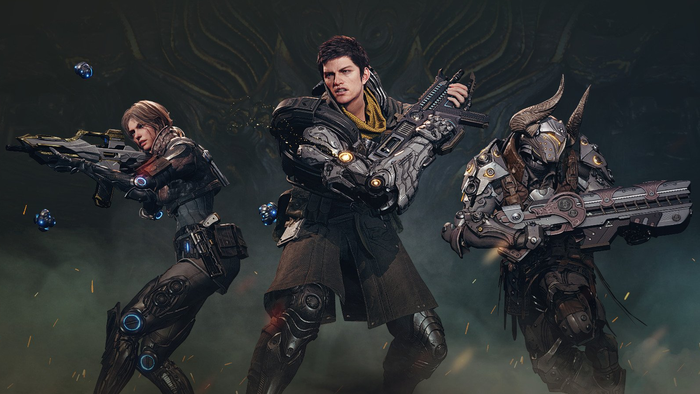
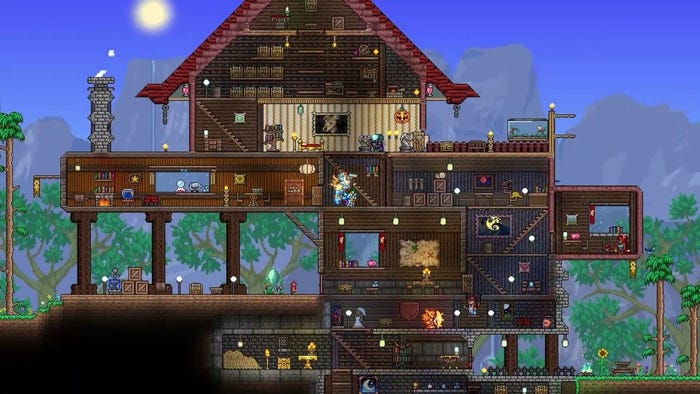
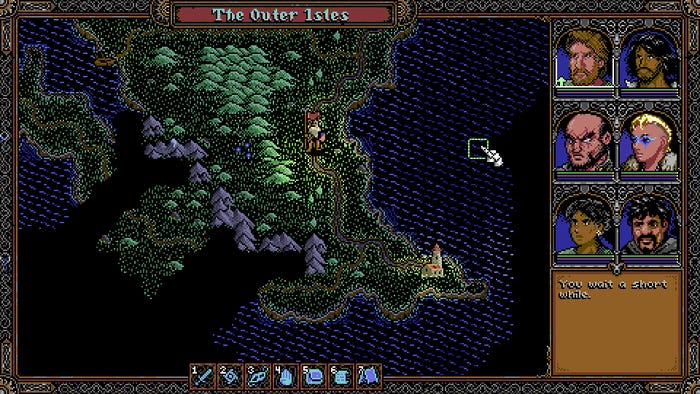
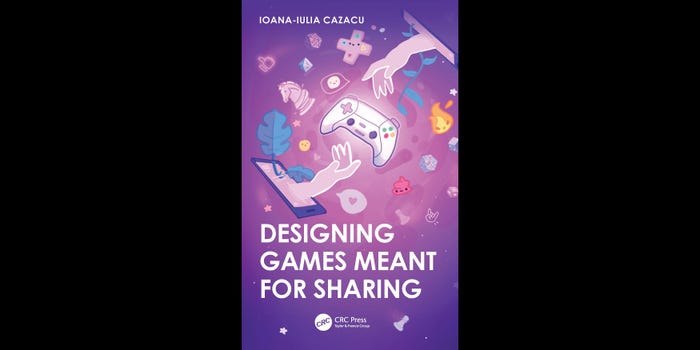

.jpeg?width=700&auto=webp&quality=80&disable=upscale)


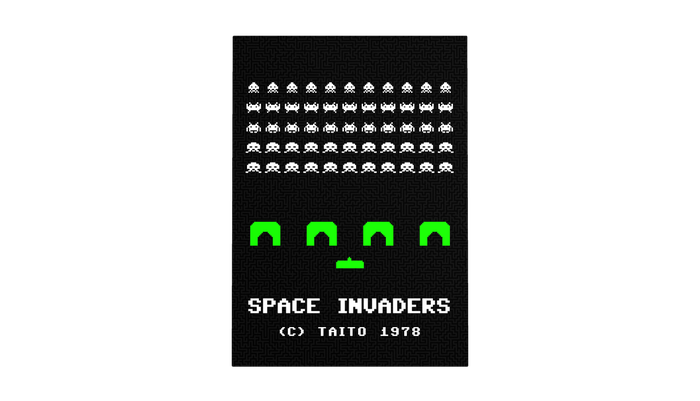
.jpg?width=700&auto=webp&quality=80&disable=upscale)
